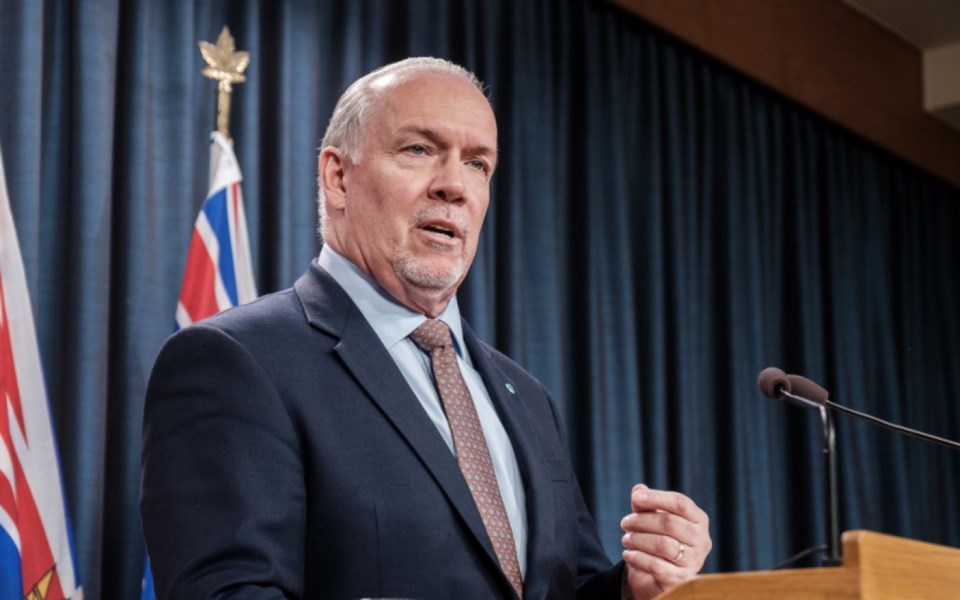Premier John Horgan offered hope in a press briefing today that restrictions on society and business can begin to be eased around or before mid-May.
But he also said there will likely be some permanent changes to the way the private long-term care and assisted living sector operates, and that "a dialogue" will need to be had with industry to address the problem of workers who don't get sick pay showing up for work sick – as was the case in a poultry plant that has had a COVID-19 outbreak.
"There will be some challenges, there's no question," Horgan said Wednesday. "But we are seeing light at the end of the tunnel. In the days ahead, cabinet will be considering how we phase in a return to normalcy.
"I think the public can expect that I'll have something to say about how we open up sooner than the middle of May," Horgan said. "But we need to be guided by the science."
He said an outbreak at a poultry processing plant in Vancouver was a disappointing turn in what is otherwise some good progress towards flattening the pandemic curve. The United Poultry plant was shut down after 28 workers there tested positive for COVID-19.
The outbreak at the poultry plant underscores a problem with those businesses that don't provide sick pay to employees.
"You shouldn't be going to work if you're sick," Horgan said. "And what we discovered at the poultry facility is that there were a number of employees that were sick and at work."
Workers who don't get sick pay often cannot afford to miss work. The COVID-19 pandemic has underscored just how big a problem that is.
"We're going to have to have a dialogue across sectors to those areas who don't provide sick pay for their employees," Horgan said.
In B.C., long term care homes and assisted living facilities have been the epicentre of the worst outbreaks, and the source of most of the deaths.
One of the problems with long-term care homes and assisted living is that many of them are operated by private companies, and front-line workers – from care aids to kitchen staff – often work part-time at multiple facilities. That likely contributed to the fact that more than two dozen care homes and assisted living facilities in B.C. have had outbreaks.
The province has ordered workers to now only work at one facility and is providing a backstop for those workers who suffer financial hardship as a result of loss of work.
Horgan those new temporary restrictions are likely to become permanent, which is going to require some significant changes to hiring policies for privately operated care homes and assisted living.
"We have always, as a political party, had concerns about the direction that long-term care took at the turn of the century back in 2001, 2002, and I think some of the challenges that we anticipated are being graphically highlighted during this time of pandemic," Horgan said.
He said the new restrictions that limit workers to a single facility are likely to become permanent.
"I think that you can anticipate that that will be – in fact you can be certain – that that will be the norm going forward.
"There are a range of things that we're learning right now through this pandemic which is going to change how we do business. What the world looks like in the months ahead is not going to be what the world looks like in the rear-view mirror."
@nbennett_biv



